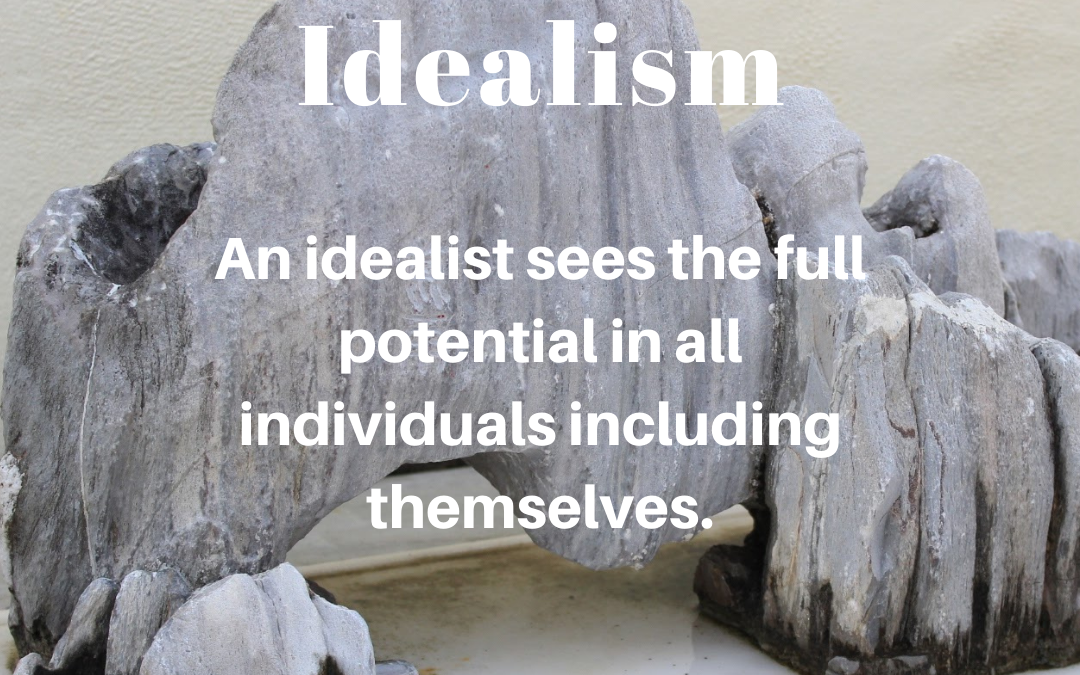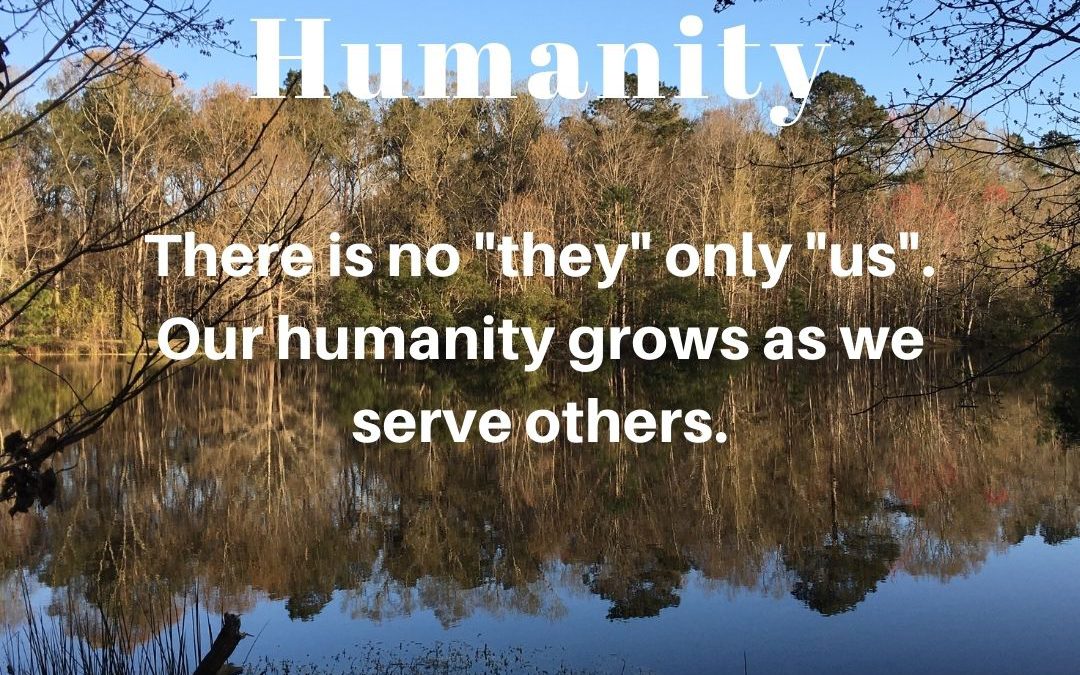
Idealism
Description
Idealism, as a virtue, is the ability to see beyond what is and envision what could be. It is fueled by the belief that change is not only possible but necessary, and it propels us to take meaningful action toward that vision. Idealists are not idle dreamers; they are individuals with a deep passion for what is important in life, whether that is justice, kindness, innovation, or equality.
At its core, idealism requires faith and courage—the faith to believe in a better future and the courage to challenge the status quo. Idealists put their principles into practice, striving to close the gap between their dreams and reality. They understand that while the world may be imperfect, they have the power to make a difference, whether in small or profound ways.
Idealism invites us all, regardless of our role in life, to dare to dream big and work diligently toward those dreams. It teaches us not to merely wish for a better world but to actively contribute to creating it through consistent, values-driven action. In this way, idealism is a driving force for transformation, inspiring others to join in making what seems impossible possible.
Affirmations for Idealism
1. I believe in the power of change and growth.
This affirmation strengthens your belief in progress and reminds you that nothing is fixed; everything can improve with time and effort
2. I focus on what is possible, not on what is wrong.
Embracing the now helps to let go of regrets about the past and worries about the future.
3. I take small steps toward my big dreams every day.
By committing to incremental progress, you acknowledge that idealism isn’t about immediate results but about persistence and dedication.
4. I am committed to making a positive impact in my world.
This declaration grounds your ideals in action, helping you stay focused on how you can contribute to the greater good, no matter the scale.
5. I embrace challenges as opportunities for growth and learning.
Challenges are often seen as roadblocks, but this affirmation encourages viewing them as valuable experiences that shape and refine your ideals.
6. I trust in my vision for a better future.
It helps reinforce your faith in your ideals, especially during moments of doubt, by affirming that your vision is worth pursuing.
7. I act with integrity, staying true to my principles.
Idealism requires action that is aligned with values. This affirmation keeps you rooted in the authenticity of your purpose..
8. I am patient with the process of creating change.
This helps manage expectations, reminding you that transformation takes time and idealism is about enduring the journey, not rushing it.
9. I inspire others by living out my ideals.
It reinforces the idea that idealism is contagious and can motivate others to see and strive for a better way forward through your example.
10. I dare to dream big and believe that anything is possible.
This encourages bold vision and deep faith in your capacity to achieve what others may deem unrealistic or out of reach.
Quotes
“Do not go where the path may lead, go instead where there is no path and leave a trail.” — Ralph Waldo Emerson
“The future belongs to those who believe in the beauty of their dreams.” — Eleanor Roosevelt
“The man who moves a mountain begins by carrying away small stones.” — Confucius
Idealism In Family Life
Idealism in family life is about fostering a shared vision of what is possible within the family, inspiring each member to strive for their best while nurturing a sense of purpose and hope. For parents, idealism means seeing the potential in each of their children and believing in their ability to grow into kind, responsible, and compassionate individuals. It encourages parents to guide with both vision and patience, creating an environment where children are empowered to dream big and work toward meaningful goals.
For children, idealism in family life involves learning to imagine a better world and understanding that their actions can help create it. It teaches them to believe in their ability to make a positive impact, both within their family and in the broader world. By practicing idealism, children are encouraged to embrace challenges as opportunities for growth and to remain hopeful even when faced with difficulties.
As a family, idealism is lived out through setting goals that reflect shared values and working together to bring those ideals into reality. It is about cultivating a home where each member believes in their own potential and the potential of others, always striving to create a family dynamic filled with love, support, and a sense of possibility.
Balancing Idealism
Idealism is a powerful virtue that drives us to envision a better world and take action to make it a reality. However, when idealism is overdeveloped, it can lead to unrealistic expectations or frustration when results aren’t immediate. Conversely, when underdeveloped, it can result in a lack of hope or the willingness to settle for the status quo. To maintain a healthy balance of idealism, it can be supported by other virtues that keep us grounded and adaptable in our efforts.
Here are some virtues that help balance idealism:
-
-
- Patience – Idealism can sometimes push for rapid change, but patience allows us to endure the slow process of growth and change without becoming discouraged.
- Resilience – Resilience helps us maintain our idealism in the face of setbacks, ensuring we don’t give up on our ideals even when faced with challenges.
- Discernment – Discernment helps idealism by focusing our energy on what is truly achievable and worth pursuing, refining our goals to be both visionary and attainable.
- Humility – Humility reminds us that our ideals are not the only way, helping us stay open to others’ perspectives and allowing room for flexibility and collaboration.
- Self-Discipline – Idealism can inspire grand visions, but self-discipline helps us stay focused on the practical, day-to-day actions required to turn those visions into reality.
- Flexibility – Flexibility balances idealism by allowing us to adapt our plans as circumstances change, ensuring that we remain open to new possibilities and ways of achieving our goals.
- Gratitude – Gratitude keeps idealism from becoming overly critical by helping us appreciate what is already good, even as we strive for improvement.
- Acceptance – Acceptance helps us understand that while we strive for a better world, some things may be beyond our control, allowing us to find peace without giving up our dreams.
-
Balancing idealism with these virtues creates a dynamic tension between dreaming big and remaining grounded in reality. Together, they help ensure that our idealism inspires positive change without leading to disillusionment or frustration. This balance enables us to pursue our dreams with wisdom, perseverance, and a clear sense of what can be accomplished.
Joe is a husband, father, grandfather, author, speaker, educator, course creator, and parent/family coach.
He helps parents develop unity, find clarity, communicate, and develop consistency in their parenting with the Four C’s of Successful Families. You can find his work on social media.
In addition, the Four C’s newsletter is enjoyed by many as it encourages parents to self-care, build their relationships with their partners, and raise their children.
And he loves to golf!





